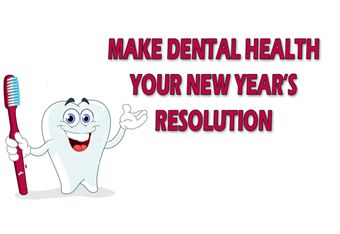
As we start 2013 together, I hope every one had a happy new year! Like many people, this year I set a new years resolution… to eat healthier and to exercise more regularly. What’s yours? To lose weight? Quit smoking? Have more time with the kids? Be more responsible with your money? …the list could go on…But is improving your dental health on your list? It may be worth while considering that as your new years’ resolution… it could in fact save your life!
While people know eating right,quitting smoking and exercising regularly are all part of leading a healthier lifestyle that can prolong your life… most people aren’t aware of the overall health benefits of taking care of your teeth. According to the National Institute of Dental and Craniofacial research, researchers have observed that people with gum disease (when compared to people without gum disease) were more likely to develop heart disease or have difficulty controlling blood sugar. Other studies showed that women with gum disease were more likely than those with healthy gums to deliver preterm, low birth weight babies. But so far, it has not been determined whether gum disease is the cause of these conditions.
There may be other reasons people with gum disease sometimes develop additional health problems.
Most adults lose their teeth to gum disease, which research links to heart disease, diabetes, preterm births and other health problems. The bacteria that cause tooth decay can cause damage in other areas of your body. The oral cavity is truly an indicator of your overall health, and not taking care of oral disease can negatively affect your health.
So how do we minimise the progression of gum disease?
1) Brush twice daily – Your mouth is the front line for battling the bacteria that damage not only your teeth and gums, but also other organs and systems in your body. Brush your teeth thoroughly at least twice daily with fluoride toothpaste.
2) Floss daily – Your toothbrush can’t reach between your teeth, which allows the bacterial film to build up. Daily flossing cleans the spaces between teeth, depriving bacteria of a safe haven.
3) Get a regular dental checkup at least annually – Preventative dentistry is better for your health – and much cheaper – than dealing with major dental problems. Many people never visit a dentist until teeth require a root canal or even extraction, problems that are expensive to fix, and affect other teeth. A checkup and a simple filling can head off thousands of dollars of repair.
5) Eat, drink and be wary – The enemy of oral health is the group of natural bacteria – particularly Strep mutans – that thrive on sugar and dissolve the protective enamel covering the teeth. Refined sugar is present in an overwhelming number of foods, and is part of the modern diabetes “epidemic.” This year, make a commitment to tooth- and health-conscious eating habits. Rinse your mouth after eating sugary food or acidic foods. Avoid sticky sweets that cling to teeth, as well as hard candies that are held in the mouth to dissolve. Drink sugary beverages through a straw so it moves immediately to the back of the mouth. Avoid sugar as much as possible – there is a clear link between diabetes and oral health, and each feeds off the other.
6) Consider a new smile – Getting bridges or crowns for missing or broken teeth isn’t a luxury; these problems can have a domino effect that leave you with shifting teeth, a vulnerability to gum disease and other growing damage. After restorations are done, you should consider the quality-of-life benefits of a new smile. A mature adult who’s lived for decades with a crooked or discolored smile can turn the page on their self-esteem, confidence and emotional well-being with teeth straightened by Invisalign clear braces, porcelain crowns or veneers, bridges and whitening.
